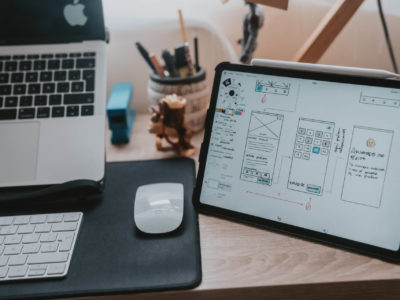There are almost 2 billion live websites on the internet and this number is increasing even as we speak.
This means that you have to fight for your place under the digital sun with numerous other companies eager, just like you, to advertise their products and generate traffic.
But the real struggle begins after you get your audience to visit your website – this achievement practically means nothing unless they convert.
Besides superb, helpful content which is crucial for increasing audience engagement, visually-oriented factors shouldn’t be neglected as they play an important role in getting your visitors to stick around and immerse in your brand narrative.
Web design isn’t just eye-candy whose purpose is to superficially dazzle your visitors. Its visual appeal has powerful psychological effects on people and can make all the difference when it comes to taking the next step down your marketing funnel.
Tap into the Power of Responsiveness
Responsive web design has been a thing for a couple of years now, and with the implementation of mobile-first indexing, its importance has surged.
As a matter of fact, 57% of people say that they wouldn’t recommend a business with a bad mobile website.
It’s only logical that every serious and respectable website is already optimized for mobile, but if you really want to target your audience precisely, you need to think about other types of web design responsiveness.
Content-first design is the approach which allows you to develop your design based on the actual content and not simply placeholders or Lorem Ipsum. In this situation, designers and content managers have to work side by side in order to achieve great UX which will bring conversions.
Instead of making plans without the actual copy, use proto-content to identify potential issues and challenges which may appear. It’s essential to use real words and see how they fit within the layout and other elements. By taking into account the length of your headlines and blocks of text, for example, it will be possible to adjust the layout accordingly.
Age-responsiveness refers to creating different content, visual components, and features that will be adjusted depending on how old the website user is. In other words, fonts will be bigger if a visitor is an elderly person, while colors will be livelier in order to appeal to younger audiences.
Similarly, the navigation menu, which is one of the most challenging web design features, could differ depending on how digitally competent users are.
 (Source: Design Rush)
(Source: Design Rush)
Introduce Micro-interactions
Although they’re little, micro-interactions play a huge role in web design.
They humanize the whole browsing experience by providing feedback, helping users see the results of their actions, and making navigation more intuitive.
Different animations, as well as visual and sound effects, teach visitors how to properly use your website – a pleasant sound notification can signify that the action was properly completed, while a flashing, red visual cue can tell them that they made a mistake.
As they’re catchy and interesting, micro-interactions easily generate engagement and result in a pleasant user experience which subsequently encourages conversions.
Paying attention to such small details means that you care about the opinion of your users. At the same time, executing everything flawlessly is technically demanding, which is why you should hire a trustworthy web designer if you want outstanding results.
Implement Innovative Chatbots
Chatbots have been around for some time, but it’s now with the advancement of AI, AR, VR, and ML technologies that they’re becoming increasingly popular and incredibly valuable. Many companies use chatbots on their websites in order to offer their customers 24/7 customer support and and automate the lead qualification process.
Chatbots have become somewhat of a staple in web design, and by 2020 almost 85% customer interactions with brands will be carried out through these smart algorithms.
Although you’ll most certainly boost engagement and increase customer retention even if you don’t opt for a fancy widget, why not leverage the full potential of chatbots by being innovative?
For example, there are AI-powered chatbots which can do some pretty amazing things like help you virtually “try on” makeup by uploading your selfie, order food through Google Assistant or any other voice search platform, or practice a new language.
The sky’s the limit. By providing easy solutions to their problems in a fun way, chatbots can attract your target audience and keep them coming back.
Educate with Persuader Videos
At one point, explainer videos were all the rage and justifiably so.
They highlight all the features and benefits of a particular product and show users how to make the most of it. But you can step up your game by being a bit more persuasive.
Persuader videos offer effective social proof and subtly convince your users to convert.
The trick is to be genuine and authentic which you can achieve by enlisting the support of your existing happy customers who could share their experiences and their success stories. Such an approach is much more compelling as people are more likely to trust their peers over brands.
Conclusion
Web design needs to keep up the pace with the latest trends because your target audience expects top-notch experience and service without having to sacrifice the visual component.
Be smart about your website aesthetics and strategic design right from the get-go. The right combination of optimized design elements will help you help increase website conversion rates and deliver a better user experience overall.
Need help with your website design? Contact Spiralytics, a UX web design company with proven strategies to increase your website conversion rates.




